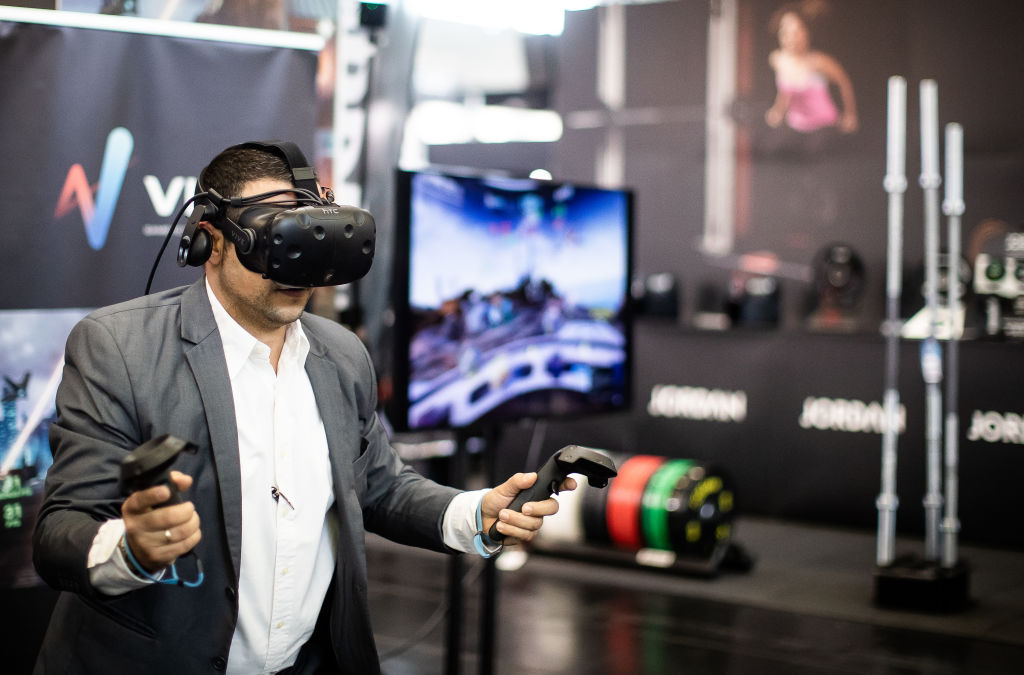‘Sport and technology an inevitable crossover of present and future’

If you will insist on selling sport tickets that have to be scanned at the turnstile via your app, at least make sure that there’s enough 4G coverage for me to access mine.
And don’t make the fallback an email proof of purchase when my mates – including the one who sorted our tickets – are already in the ground in a lengthy queue for the first beer of the evening.
In a huddle of similarly frustrated punters outside the gates at the Ageas Bowl for England’s recent T20, I realised that the dystopian future reliant on robust tech had already arrived.
Attention spans
Event organisers and broadcasters see technological innovation as key to our future consumption of live sport – in the flesh, on the move and at home.
Shortening attention spans in all generations, not just the young; competing demands on scarce leisure time; and heightened expectations set by the gaming and entertainment industries. All are combining to challenge traditional sports presentation.
Hence new formats, such as The Hundred, multiple broadcast models – linear coverage, highlights clips and interactivity side-by-side – and streaming platforms buying up sports rights.
The first of two comments that have stayed with me from the recent Web3 Summit at Emirates Stadium came from Scott Carlson of Kudelski Security: “Broadcast rights get you into the home. Web3 gets you into the person.”
Ahead of the summit my mindset on technological enhancement of sport watching was mired in virtual reality headset mode.
Call me a stick-in-the mud, but I can’t see myself with a massive VR contraption strapped to my head in the privacy of my own home, let alone in the stands at Selhurst Park.
Turns out the future is augmented reality glasses, however, and even I might get excited at their potential. Provided stadium Wi-Fi holds up and Openreach eventually installs the long-promised fibre broadband at home.
Experience in sport
The second comment that has remained with me came from BT Sport’s Director of Mobile and Immersive Strategy, Matt Stagg: “We have to make the tech work for Grandma, who just wants to watch the game.”
The beauty of AR, it transpires, is that it allows each consumer to have their sporting experience individually tailored.
A family could sit together watching a game, live or at home, and each have a different degree of augmentation. From novice to nerd, if you like.
Simple explanations – even just player identification, if your eyes aren’t up to reading the numbers on the backs of shirts – through to rich, real-time data analysis. And all can enjoy instant replays and multiple viewing angles.
Proponents talk enthusiastically about every seat being the best in the ground. But I suspect they are forgetting differing proximity to the bars, burger stands and toilets as well as exits that crowd differently at the final whistle. I get the basic ambition through.
Last autumn I had the privilege of sitting just behind Eddie Jones during an England rugby international.
It was a fantastic experience watching the England coach and his analysts with their array of screens and headsets.
Instant replays during breaks in play were pored over together – most tellingly, shots from behind the posts, presumably to search for line break opportunities that may not have been apparent sideways on.
The assistant with iPad is now a staple behind managers at top level football. Playbooks are interactive, no longer thick files, so that in-game optionality can be analysed real time.
Cricket wouldn’t be cricket today if there wasn’t a laptop or two in evidence on the dressing room balcony.
Now, imagine your live sport experience to be as data rich and interactive as that available to Jones, Gareth Southgate or Brendon McCullum. Without the pressure to perform of course! That’s where those at the heart of sport believe you’re heading.
As an aside, I read what I thought to be a rather pious article last week calling for the MCC to stop the practice of England cricketers holding up numbers in the pavilion to signal tactical instructions or advice to the captain on the field.
This is like suggesting King Canute could hold back the tide. Cricket’s opportunity is to harness technology not outlaw it.
The time will come when the captain on the field takes advice via his AR glasses and in the audience we get to see and hear it for ourselves. Maybe only with a delay for bleeping out the swearing, as in Formula 1’s cockpit comms.
You can see in this brave new world how gaming and sport will become increasingly intertwined, and gambling too. Live sport as entertainment is a spectrum not a fixed point. It will be for you to choose just where on that spectrum you want to interact from.
At the bell
With only a few finals-heavy days of Oregon22 left, these World Athletics Championships are delivering on most of their key targets as the sport’s chiefs strive to crack the American market.
Great sport. A full stadium for the evening sessions. But winning US athletes are slightly scarcer than expected. And we’ve yet to see any world records. Still 21 gold medals up for grabs though.
Talking of winners…
Jake Wightman. Bloody hell! If you’ve not watched his stellar 1500m win, why ever not. Cliché I know, but couldn’t happen to a nicer guy.
And congratulations to the GB wheelchair rugby team. Gold in the inaugural ‘low point’ tournament at the World Games in Alabama last weekend to follow Britain’s triumph at last year’s Paralympics. Undefeated throughout the competition too.
Ed Warner is chair of GB Wheelchair Rugby and writes at sportinc.substack.com
